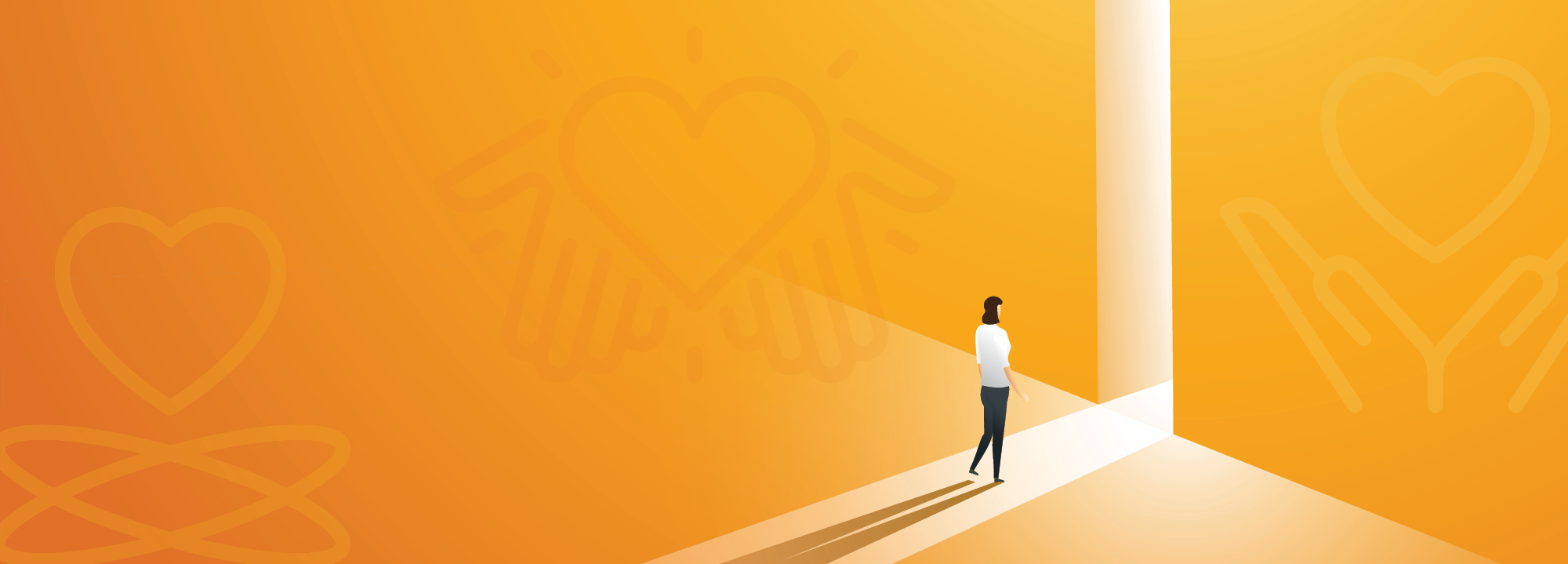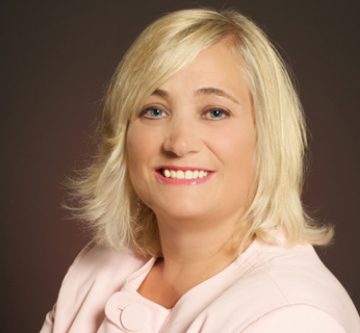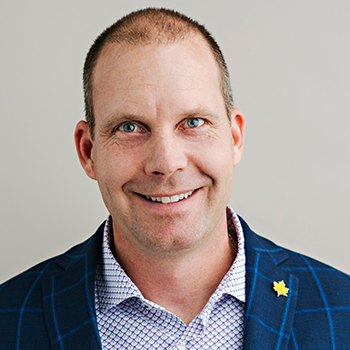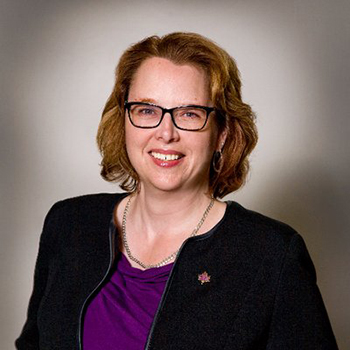
When the World Health Organization declared the novel coronavirus outbreak a global pandemic on March 11, Wilfrid Laurier University was prepared to act. The university’s Coronavirus Working Group had been meeting since late January – about a month after the first few cases of the virus were discovered in Wuhan, China – to monitor developments and plan possible scenarios.
The working group, which included senior leaders at Laurier, was working with public health officials, the Council of Ontario Universities and Universities Canada while awaiting guidance from federal and provincial governments about how best to respond to the growing public health threat.

By March 13, Laurier put its plan into action. The university discontinued in-person classes for the remainder of the winter term. Students in residence moved home, if they could, and instructors started making plans to complete the remainder of the term, including final exams, remotely. Managers encouraged staff members to work from home.
The university cancelled or postponed all non-academic events, including concerts and public lectures. International travel for university business stopped. All field research and research involving in-person interactions paused, while staff and faculty were notified about what they should do if they became infected with the novel coronavirus. That same day – March 13 – several staff members set up a COVID-19 Information Centre in a boardroom on the Waterloo campus and began answering the hundreds of emails and phone calls that began to flow in.

– Maureen Mancuso, interim provost and vice-president: academic
During the next several days, thousands of students living in residence and off campus moved out of Brantford and Waterloo Region, opting to stay with family and friends. Most of Laurier’s workforce took their computers home and began working in home offices or at kitchen tables. Parts of campus, including the Library on the Waterloo campus, Service Laurier and the Accessible Learning Centre, shut down physical spaces and expanded their digital presence.
At the same time, faculty members began learning new software that would allow them to deliver their classes remotely and plan for final exams, all while supporting and advocating for students who were also adjusting to the unprecedented changes.
“I am proud of how our faculty and staff have responded to the challenges of the pandemic,” says Maureen Mancuso, interim provost and vice-president: academic.
“With creativity and commitment, faculty were able to move the remaining three weeks of the semester to remote, technology-enabled teaching environments and have shown incredible compassion and care for their students as they completed their courses and exams.”
When taking action to address the unprecedented situation brought by the pandemic, Laurier leaders remained focused on guiding principles: maintaining the university's high-level of student experience, ensuring the quality of academic programs, continuing to serve Laurier's communities and remaining committed to university employees.
…

Laurier’s students were nearing the end of the winter term when the news of the global pandemic hit. At a time when their academic workload was heavy, many students found themselves packing up their belongings and moving out. Others, including international students who couldn’t return home, suddenly found themselves on much quieter campuses. Many students faced financial strain because they couldn’t break their leases or find someone to sublet their dwelling, or because they had to leave their part-time jobs or were let go.
“Students were faced with immediate and significant changes, both in and beyond the classroom,” says David McMurray, vice-president of Student Affairs. "Laurier’s highest priority, along with the safety of our community, was to support students so they could successfully complete the academic year.
“With enhanced academic advising assistance, personal wellness support and emergency financial assistance, our students displayed great resilience and determination despite such challenging conditions. We are so proud of each and every one of them.”
At the same time, students were adjusting to learning online – some while struggling with slow Internet speed at home and navigating online learning and video-streaming technology.
But Laurier’s offices and departments responded to students’ needs, working to make services available online as quickly as possible. The Wellness Centre began offering telephone appointments to connect students with counsellors, doctors, nurses and mental health professionals, as well as a series of workshops about well-being via videoconferencing.

– Jason Coolman, vice-president of advancement and external relations
The Career Centre helped students with resume writing and career planning through webinars, and offered an online version of its Career Development Certificate. Academic advisors met with students through online appointments and arranged virtual study groups and drop-in sessions for writing, math and study skills. The Accessible Learning Centre found new ways to support students living with disabilities who were now attending class and writing exams remotely.
Newly developed online guides helped students to navigate learning online, manage time effectively while working from home, and access financial support. Tech support helped students online and loaned equipment where needed. Even fitness instructors from the Waterloo Athletic Complex livestreamed free online classes.

As it took stock of the challenges presented by the pandemic, the university changed some of its policies in response. With some students facing circumstances that impacted their ability to complete the term remotely with their normal level of attention and focus, the university gave students the option to convert their winter term grades to either “credit” or “withdraw,” so their term grade wouldn’t affect their average. The university also reduced or eliminated some spring and summer term incidental student fees and extended academic deadlines.
With continued focus on the needs of its students, Laurier quickly set up the COVID-19 Emergency Fund to assist students with emergency financial relief, health and wellness, and teaching and learning supports throughout the crisis.
Currently, funding is being directed to students directly through an emergency funding initiative for those who faced pandemic-related financial hardship in March and April. Eligible students received one-time bursaries and grants of up to $500 to help them with essential living expenses such as groceries and rent. Established with available university funds that were immediately allocated to students, the ability of the emergency fund to meet the high-level remaining student need now depends on donations, such as the $50,000 contribution from the Wilfrid Laurier University Alumni Association.
“At Laurier, our students’ health and well-being is our top priority,” says Jason Coolman, vice-president of advancement and external relations. “We know our students are navigating through some really challenging times and we want to help. That’s why we established the Emergency Fund, which not only helps students struggling financially, but also supports the wellness programming they need now more than ever and the technological resources they’ll need to succeed in this new learning environment. I am grateful to all our alumni, staff, faculty and partners who have already given generously to this fund.”
…


– David McMurray, vice-president: student affairs
While facing tremendous challenges, Laurier students, true to form, still found the time to give back, supporting each other and their communities in unique and creative ways. Within weeks of the World Health Organization declaring a pandemic, students launched fundraisers for local hospitals in need of equipment, as well as for the Food Bank of Waterloo Region. They also helped collect and donate personal protective equipment to healthcare workers.
Two double-degree business administration and computer science students – Surya Krishnan and Miraal Kabir – helped develop Flatten, an app that illustrates the spread of COVID-19 using self-reported information. Hundreds of thousands of people from across the country have inputted their data to the app.
In an effort to support local businesses, another group of business students, led by Tyler De Sousa, started WaterLoot, a service that mails a “mystery box” full of local products to subscribers. The boxes ship monthly and can contain food, self-care products, books, games and gift cards from businesses in Waterloo Region.
…

As an institution, Laurier has always been focused on giving back to its communities, and the pandemic has only heightened this commitment. The university offered hundreds of apartment-style residences on the Waterloo campus to local healthcare workers concerned about carrying the novel coronavirus home to their loved ones.
“Supporting our communities any way we can remains a top priority for Laurier,” says Deborah MacLatchy, Laurier’s president and vice-chancellor. “Providing additional housing options for public health workers is something the Laurier community was ready, able and proud to do during this global health crisis.”
The university also donated tens of thousands of pieces of personal protective equipment to Grand River Hospital in Kitchener and the Brant Community Healthcare System in Brantford. The equipment – including N95 masks, disposable gloves and isolation gowns – came from Laurier’s Student Wellness Centres, the department of Safety, Health, Environment and Risk Management and labs within the Faculty of Science and Faculty of Human and Social Sciences.
Several Laurier faculty members are also contributing through their research. They’re studying pressing topics related to the coronavirus pandemic, including potential protection for frontline healthcare workers, as well as the pandemic’s impact on food security and mental health. Many other Laurier experts are contributing expertise as part of the public dialogue about the pandemic by speaking to local, national and international media about related topics, including epidemiology, children’s education and climate change.

– Deborah MacLatchy, president and vice-chancellor
Laurier’s Centre for Public Safety and Well-Being offered a free online self-care training and resiliency course open to the public. The Faculty of Education helped parents of children learning from home by providing educator guides. The Faculty of Music posted performances online, while Martin Luther University College and the Balsillie School of International Affairs both joined other institutions in Waterloo Region to chime their bells for a full minute every day at 7:30 p.m. in support of frontline healthcare workers.
The university moved many public lectures, seminars and concerts online, such as a sector-leading virtual open house developed in place of Laurier’s annual March spring open house event. The interactive online introduction to Laurier’s campuses gave future students and their parents a glimpse into the campus experience through online virtual reality campus tours, video tours of residences, podcasts, webinars and Q&As with current students.

“Like many organizations, Laurier has had to respond to the challenges of COVID-19 quickly and decisively to help ensure public safety. This meant making difficult decisions that have impacted our students, faculty and staff,” says MacLatchy. “Despite the disruption, the Laurier community responded with resiliency, finding creative solutions to the challenges that will continue to confront our country and university for some time.
“I am very proud of how well Laurier has responded to this unprecedented situation and know that we will come out of it with a renewed commitment to support our thriving community while we prioritize academic and research excellence and student success.”
…
Laurier will continue to offer most courses online and virtually for the coming fall term. While there are many details still to be confirmed, the university community will continue working together in new and creative ways to ensure students receive the best experience possible.
“The one thing we can be certain of is this: throughout our planning we will remain committed to providing academic excellence and development of the whole person, qualities for which Laurier is known,” says MacLatchy. “In times such as these, we must stay true to who we are – a community that cares deeply about one another and about the well-being of the world around us.”
